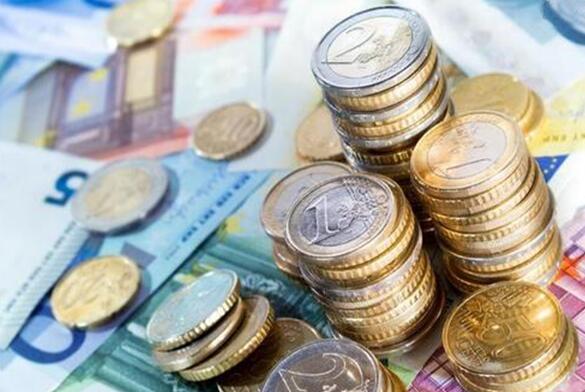Looking Forward to the European Central Bank's Interest Rate Resolution

On the evening of Thursday, October 28, the European Central Bank will announce its interest rate decision, and European Central Bank President Lagarde will deliver a speech after the meeting.
The current market expects that the European Central Bank will maintain the main interest rate unchanged, and the market focuses on the European Central Bank's description of inflation and clues to future interest rate hikes.
September meeting review
At the September meeting, the European Central Bank decided to "calibrate" the emergency bond purchase plan (PEPP). European Central Bank President Lagarde specifically pointed out, "We are not reducing bond purchases, but calibrating the emergency bond purchase plan. (PEPP)” and emphasized that mid- and long-term inflation expectations are still sluggish.
Judging from the last meeting, although the European Central Bank has begun to "calibrate", it is still relatively dovish as a whole.
Highlights of the October meeting: Inflation
In recent times, European inflation has been high, especially energy prices have been soaring. Data shows that consumer prices in the Eurozone rose 3.4% in September, the largest increase in 13 years. This has increased the pressure of the European Central Bank's monetary tightening.
The European Central Bank has previously stated that inflation will be temporary and has made it clear that it will not tighten policy until the average inflation rate reaches about 2%. However, it is worth noting that the key market indicator of long-term inflation expectations in the euro zone last Friday touched 2% for the first time since 2014.
At this meeting, the European Central Bank may admit that the jump in price pressure may be longer than expected, but it is unlikely to make it abandon its dovish policy stance.
European Central Bank executive committee member Lien said that because the growth of service prices and wages is still weak, the current inflationary pain in the euro zone is not a trigger for monetary policy actions.
Although the ECB Management Committee will discuss the continuity of the current surge in inflation, regardless of whether inflation above the target continues, ECB President Lagarde will most likely still stick to her dovish views. Otherwise, when the PEPP expires in March next year, it will face an awkward situation.
The European Central Bank is expected to make a decision in December on how PEPP should expire in March next year, and is currently debating on follow-up actions. According to a recent report, the European Central Bank is studying a new bond purchase plan to supplement the existing 20 billion euros per month open asset purchase plan to prevent market chaos at the end of PEPP.
Aspect Two of the October Meeting: Expectation of Interest Rate Increase
According to the latest survey, economists generally believe that the European Central Bank will not raise interest rates before the end of 2023. However, among economists who answered additional questions, nearly 90% (35 out of 40) believed that it would increase interest rates. The interest time may be earlier than expected.
The market's expectations are more radical. The market’s expectations for interest rate hikes have risen sharply in recent weeks, and market prices indicate that it is expected to raise interest rates by 10 basis points before the end of 2022.
This deviates from the European Central Bank's ultra-loose monetary policy stance, which is mainly due to the spillover effect of the sharp adjustments in the UK and US markets. Investors in these two countries currently expect their central bank policies to tighten. Lien has refuted market pricing, and Lagarde may do the same on Thursday. The market may continue to hedge the risk of early tightening by the European Central Bank.
Lagarde has emphasized that the European Central Bank should not rush to tighten monetary policy, because this may endanger the economic recovery of the euro zone and affect employment.
Summarize
The European Central Bank has always been known for its loose monetary policy. Although the current market expectations of its interest rate hike are increasing, the European Central Bank is likely to maintain its dovish style, which may put pressure on the euro.



